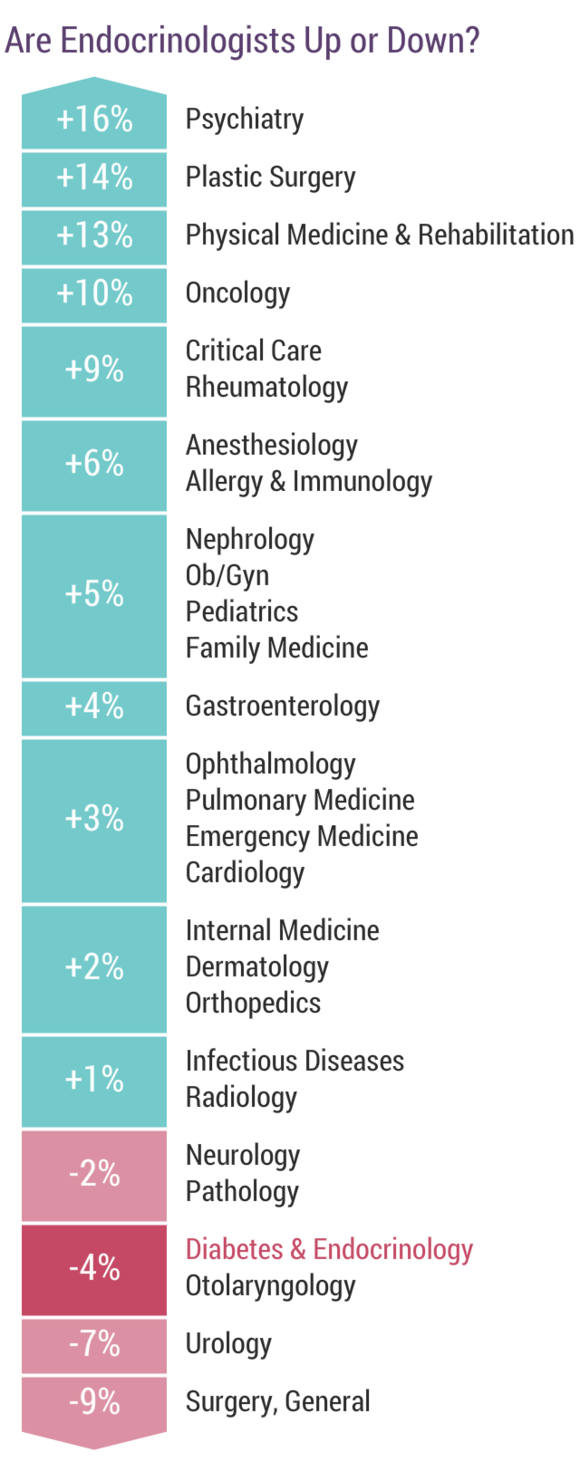The Scientific Research Behind Hormonal Agent Policy: Insights From an Endocrinologist
The Scientific Research Behind Hormone Policy: Insights From an Endocrinologist supplies an extensive expedition of the detailed procedures associated with hormone guideline. Created by an experienced endocrinologist, this insightful overview looks into the fascinating globe of hormonal agents and their essential function in preserving physical features. From the principles of hormonal agent manufacturing to the complex feedback loops that regulate their release, this publication supplies a thorough examination of the devices at play. In addition, it explores the various elements that can interrupt hormone balance and provides important insights into how these imbalances can be diagnosed and treated. Whether you are a medical professional seeking a deeper understanding of endocrine function or a private thinking about discovering the science behind hormone regulation, this book is a very useful source.
Hormonal Agents and Their Features
Hormones play crucial functions in the regulation and control of different physiological procedures within the body. These chemical carriers are produced by endocrine glands and are launched right into the blood stream, where they travel to target cells or body organs to exert their effects. The features of hormones vary and include nearly every aspect of human physiology.
Among the main features of hormones is to keep homeostasis, which is the steady internal atmosphere necessary for the body to work optimally. As an example, insulin, a hormone created by the pancreas, manages blood sugar degrees by advertising the uptake and storage space of glucose in cells. An additional hormonal agent, cortisol, assists the body react to tension by raising blood glucose degrees and reducing the body immune system.
Hormones likewise play crucial functions in growth and growth. Growth hormone, generated by the pituitary gland, stimulates the growth of cells and bones, while thyroid hormonal agents regulate metabolism and affect the development of the nerves - Endocrinologist in leander. Additionally, reproductive hormones, such as estrogen and testosterone, are responsible for the advancement and upkeep of secondary sexual attributes and the law of the menstrual cycle
The Endocrine System: A Review
Playing a critical role in the policy and sychronisation of physical procedures, the endocrine system is an intricate network of glands that generate and launch hormonal agents right into the bloodstream. These glands, consisting of the hypothalamus, pituitary gland, thyroid gland, adrenal glands, pancreatic, ovaries, and testes, produce hormonal agents that function as chemical carriers, affecting different bodily functions. The endocrine system works in conjunction with the nervous system to control and maintain homeostasis, ensuring that the body's internal setting remains steady.
The hypothalamus, situated in the brain, is thought about the master regulator of the endocrine system. It produces hormones that boost or prevent the launch of hormonal agents from the pituitary gland, which subsequently manages the activity of other endocrine glands. The thyroid gland, situated in the neck, produces hormones that manage metabolic rate and power balance. The adrenal glands, situated atop the kidneys, generate hormones that help the body respond to anxiety and regulate high blood pressure.

Regulation of Hormonal Agent Manufacturing
The policy of hormone manufacturing includes a complicated interplay between various glands and comments mechanisms within the endocrine system. Hormonal agents are chemical carriers that play a vital function in maintaining homeostasis and working with different physiological procedures in the body. The production of hormonal agents is securely controlled to make certain the appropriate functioning of the endocrine system.
The hypothalamus, situated in the brain, works as an essential my link regulator of hormonal agent production. It launches hormones that boost or prevent the manufacturing of hormonal agents by the pituitary gland, which is frequently described as the "master gland" of the endocrine system. The pituitary gland, consequently, generates hormones that act upon various target glands throughout the body, promoting them to produce and release specific hormonal agents.
Feedback systems additionally play an important role in hormonal agent regulation. There are 2 sorts of feedback devices: unfavorable responses and positive comments. Adverse feedback assists keep hormone degrees within a narrow variety. When hormone degrees climb above or fall listed below the optimum range, the body sets off systems to either decrease or boost hormonal agent production, respectively, to bring back equilibrium. Favorable feedback, on the other hand, intensifies the production of hormones in action to particular stimulations, such as childbirth.
Feedback Loops in Hormone Regulation
Feedback loops play a critical function in the guideline of hormonal agent production. These loopholes include a series of communications in between the endocrine glands, hormonal agents, and target organs to maintain homeostasis in the body. There are two sorts of responses loopholes: unfavorable comments and positive responses.
Adverse comments is the most common kind of responses loop in hormone regulation. It functions by noticing the levels of a hormone in the blood and adjusting hormonal agent production appropriately. When hormone degrees increase above a particular limit, the hypothalamus in the brain indicates the pituitary gland to lower hormonal agent manufacturing. This, subsequently, minimizes the stimulation of the target body organ, bring about a reduction in hormone secretion. Alternatively, when hormonal agent levels go down below the limit, the hypothalamus promotes the pituitary gland to enhance hormonal agent production, recovering balance.
Positive responses loops, on the other hand, amplify hormonal agent manufacturing. This happens when a hormonal agent stimulates the launch of more of the very same hormone, causing a quick increase in its degrees. However, positive responses loops are less usual in hormone policy and are generally associated with certain physical processes, such as childbirth and lactation.
Factors Influencing Hormone Balance
Aspects affecting hormone equilibrium consist of dietary selections, lifestyle practices, and ecological direct exposures. These variables can have a substantial effect on the delicate balance of hormones in the body, impacting numerous physical procedures and total wellness.
Nutritional options play a vital function in hormonal agent guideline. Taking in a balanced diet that consists of a selection of nutrients is necessary for preserving hormone balance.
Sufficient sleep is critical for hormone manufacturing and policy, as interfered with sleep patterns can lead to inequalities. Furthermore, persistent tension can dysregulate the hypothalamic-pituitary-adrenal (HPA) axis, a vital player in hormonal agent guideline, leading to a waterfall of hormonal get more inequalities.

Verdict
Finally, comprehending the scientific research behind hormone guideline is essential for preserving total health and wellness. Hormonal agents play crucial functions in various physical features, and their manufacturing is regulated by complicated responses loopholes. Factors such as way of life, anxiety, and diet plan choices can influence hormone equilibrium. By examining and understanding these devices, we can much better understand and manage hormone-related conditions, ultimately leading to improved health outcomes.
The Scientific Research Behind Hormone Regulation: Insights From an Endocrinologist supplies a detailed exploration of the detailed procedures included in hormone law. It creates hormones that boost or inhibit the launch of hormonal agents from the pituitary gland, which in turn controls the task of other endocrine glands. It launches hormonal agents that promote or inhibit the manufacturing of hormones by the pituitary gland, which is often referred to as the "master gland" of the endocrine system. The pituitary gland, in turn, generates hormones that act on different target glands throughout the body, stimulating them to create and launch particular hormonal agents.
When hormone levels climb above official website a specific limit, the hypothalamus in the brain signifies the pituitary gland to decrease hormone manufacturing. (Endocrinologist)